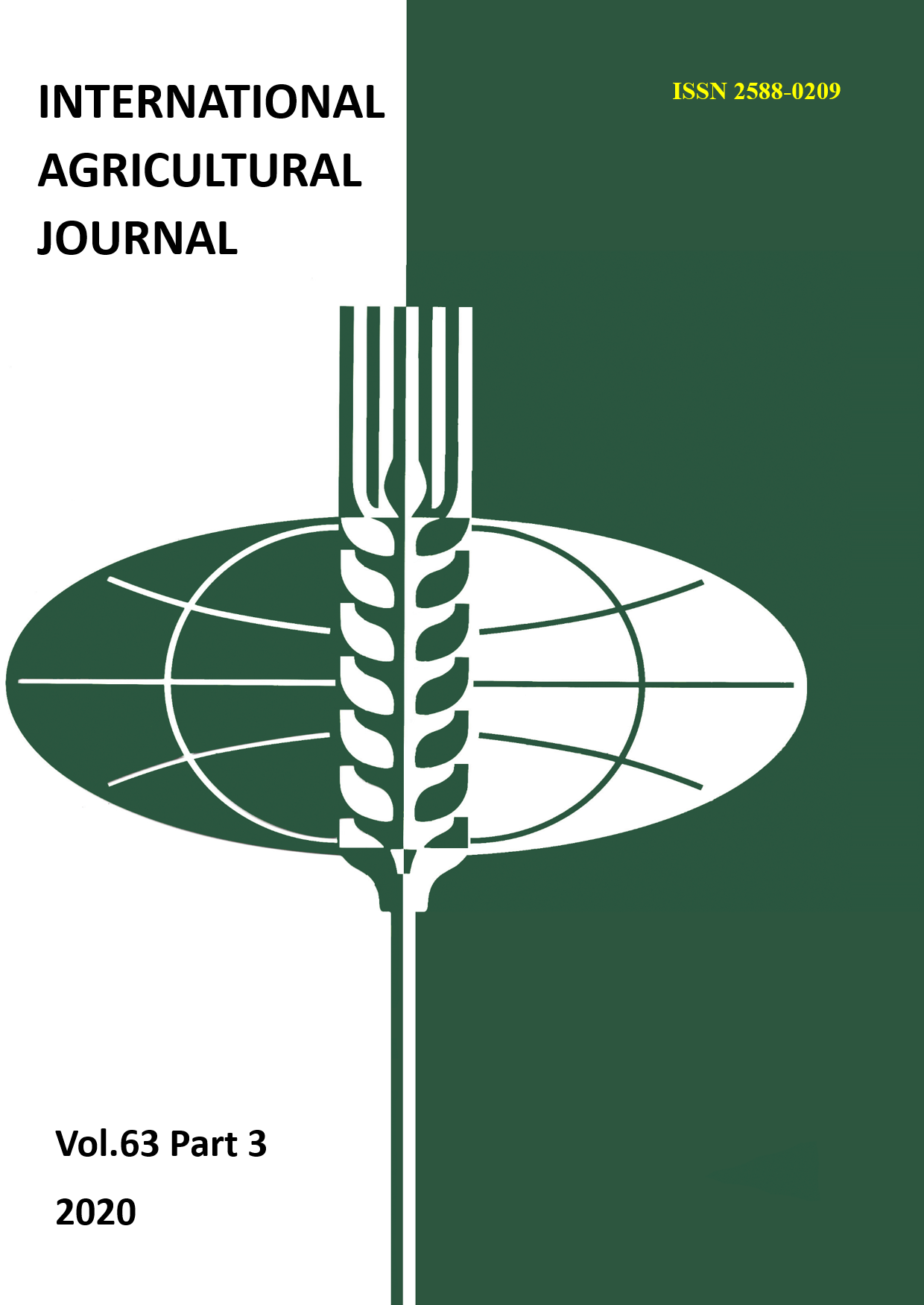JUSTIFICATION OF THE LAND AND SECURITY SYSTEM INCREASES IN AGRORESOURCE POTENTIAL AGROLANDSCAPES
Main Article Content
Abstract
The fundamental condition of environmental management is the preservation of sustainable soil condition. When this condition is violated, man-made land degradation is widespread and diverse. Restoration of lost fertility is possible only after the use of expensive complex agromeliorational measures, including drainage, salting, washing, decompression and application of chemical meliorants. As a result of man-made activity, there are various degradation changes affecting fertility, sometimes not significantly and sometimes significantly. This calls for theoretical and practical measures to protect soils from degradation change. The results of the justification calculations are significantly influenced by uneven leakage rates and initial salt content, as well as by the accepted toxicity threshold. Systematization of the causes of degradation and development of the system of measures will make it possible to protect the soil from degradation changes, when paying special attention to the settlement of the hydrodynamic situation, taking into account the temporary and area variability of leakage rates, combining hydrogeological research with the solution of a complex of agromeliorative tasks. In the article the authors consider the differential equation of washing pollution from soils taking into account its dilution with soil moisture. The volume of the irrigation mass, the concentration of contamination in the soil, the consumption of irrigation water, the concentration of pollution in the irrigation water, the volume of soil moisture are taken into account. The solution of the equation in question reflects the dynamics of the pollutant from the soil and is a model of the processes of mixing and dilution of irrigation water in the soil basin. The model can be used to predict salinization and prevent secondary salinization of land to justify the mode of washing and watering.
Article Details
References
2. Podkolzin O.A., Sokolova I.V., Slyusarev V.N., Osipov A.V., Shvets T.V., Perov A.Yu. Monitoring i otsenka sostoyaniya pochv stepnykh agro-landshaftov severo-zapadnogo Kavkaza // Agrokhimicheskii vestnik. 2019. № 1. S. 11-15.
3. Safronova T.I., Khadzhidi A.E., Kholod E.V. Obosnovanie metoda upravleniya agroresursnym potentsialom agrolandshaftov // Sovremennye problemy nauki i obrazovaniya. 2015. № 2. S. 223.
4. Safronova T.I., Lutsenko E.V. Issledovanie semanticheskoi informa-tsionnoi modeli upravleniya kachestvom gruntovykh vod na risovykh orositel'-nykh sistemakh // Politematich-eskii setevoi ehlektronnyi nauchnyi zhurnal Ku-banskogo gosudarstvennogo universiteta. 2004. №7. S. 5-28.
5. Safronova T.I., Lutsenko E.V. Sintez, optimizatsiya i verifikatsiya se-manticheskoi in-formatsionnoi modeli upravleniya kachestvom gruntovykh vod na risovykh orositel'nykh sistemakh // Politematicheskii setevoi ehlektronnyi nauchnyi zhurnal Kubanskogo gosudar-stvennogo agrarnogo universiteta. 2004. № 7. S. 44-51.
6. Safronova T.I., O.P. Kharlamova O.P., Prikhod'ko I.A. Regulirova-nie solevogo rezhi-ma pochv risovykh orositel'nykh sistem // Trudy Kubansko-go gosudarstvennogo agrarnogo universiteta. 2012. № 36. S. 324-329.
7. Podkolzin O.A., Sokolova I.V., Osipov A.V., Barakina E.E., Perov A.Yu. Soderzhanie osnovnykh mikroehlementov v pochvakh Krasnodarskogo kraya // Trudy Kubanskogo gosudar-stvennogo agrarnogo universiteta. 2017. № 69. S. 171-176.
8. Safronova T.I, Sokolova I.V. O distsipline «Matematicheskoe mode-lirovanie protsessov v komponentakh prirodY» na fakul'tete gidromeliora-tsii // Mezhdunarodnyi zhurnal ehksperimental'nogo obrazovaniya. 2018. № 3. S. 27-31.
9. Kumar, S. Developing soil matric potential based irrigation strategies of direct seeded rice for improving yield and water productivity / S. Kumar, B. Nar-jary, K. H.S. Kumar, Jat, S.K. Kamra, R.K. Yadav // Agricultural Water Manage-ment. 2019. Volume 215, Pages 8-15.
10. Bhuiyan, K.A. Grain yield, growth response, and water use efficiency of direct wet-seeded rice as affected by nitrogen rates under alternate wetting and dry-ing irrigation system / K.A. Bhuiyan, S.U. Bhuiya, M.A. Saleque, A. Khatun // Communications in Soil Science and Plant Analysis. 2018. Volume 49, Issue 20, Pages 2527-2545.

